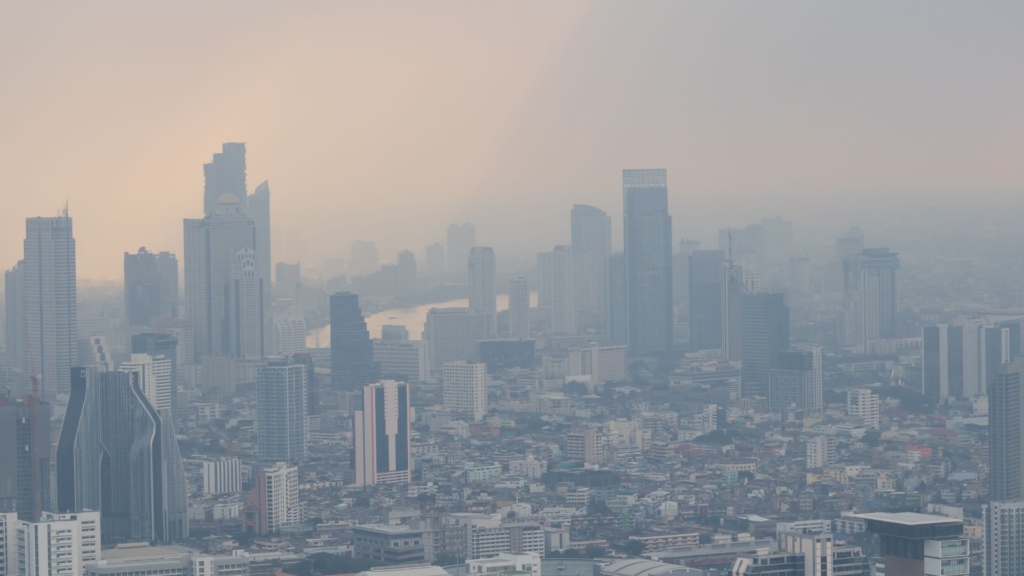Facing a lung cancer diagnosis is challenging in any circumstance, but for expatriates living in Indonesia, the experience can be even more complex due to unfamiliar healthcare systems, environmental factors, and cultural barriers. Understanding the risks, recognizing symptoms early, and knowing where to seek treatment are crucial steps for expats navigating this difficult journey.
According to Indonesia Expat, lung cancer is often detected late, making early diagnosis and access to proper care vital for improving outcomes:
“Over 70% of lung cancer cases are diagnosed at an advanced stage, highlighting the importance of regular check-ups and early detection.” (Indonesia Expat, Battling Lung Cancer Away from Home: A Guide for Expats)
This guide will help expats in Indonesia understand risk factors, symptoms, and the best medical options available for lung cancer treatment.
Understanding Lung Cancer Risks in Indonesia

- Air Pollution and Environmental Hazards
Indonesia’s urban centers, especially Jakarta, struggle with high levels of air pollution, which can significantly increase the risk of respiratory diseases, including lung cancer.
- PM2.5 particles and industrial emissions contribute to poor air quality.
- Expats living in densely populated areas face higher exposure to pollutants.
- Investing in air purifiers and limiting outdoor activities during high-pollution days can help reduce risks.

- Smoking Culture and Second-Hand Smoke
Indonesia has one of the highest rates of smoking in the world. Expats living and working in the country may be exposed to second-hand smoke, a significant risk factor for lung cancer.
- Smoking is common in public spaces, restaurants, and offices, despite restrictions.
- Non-smokers living with long-term exposure to second-hand smoke are at increased risk.

- Occupational Hazards
Certain industries in Indonesia, such as construction and manufacturing, expose workers to hazardous materials like asbestos and chemicals, which can increase lung cancer risks.
Recognizing the Symptoms of Lung Cancer
Lung cancer is often called a “silent killer” because it typically shows no symptoms in its early stages. Dr. Jaka Pradipta, an Oncology Pulmonologist at Mayapada Hospital Kuningan, emphasizes that early detection is crucial:
“Most lung cancer cases are diagnosed too late. Regular check-ups are essential, even if no symptoms are present.”
Common Symptoms to Watch For:
- Persistent cough lasting more than two weeks.
- Shortness of breath or difficulty breathing.
- Coughing up blood or blood-streaked mucus.
- Wheezing or hoarseness that doesn’t go away.
- Chest pain that worsens with deep breathing or coughing.
- Unexplained weight loss and fatigue.
If you experience any of these symptoms, seek immediate medical attention for a proper diagnosis.
Where to Seek Lung Cancer Treatment in Indonesia
Expats in Indonesia have access to international-standard healthcare facilities specializing in oncology and pulmonology.
- Mayapada Hospital – Comprehensive Cancer Care
Mayapada Hospital is one of Indonesia’s leading healthcare providers for lung cancer diagnosis and treatment.
- Low Dose CT Scans (LDCT): Advanced imaging technology for early lung cancer detection.
- Cryo Bronchoscopy: A cutting-edge, non-invasive diagnostic procedure.
- Comprehensive Oncology Center: Offering chemotherapy, radiation, targeted therapy, and immunotherapy.
- JCI Accreditation: Ensures adherence to international healthcare standards.
Dr. Eric Daniel Tenda, an expert in interventional pulmonology at Mayapada, notes the importance of tailored treatment plans based on individual patient needs.
📱 Mayapada Hospital also offers the MyCare app for easy appointment booking and access to medical services.

Treatment Options Available for Expats
Lung cancer treatment depends on the stage and type of cancer, as well as the patient’s overall health. In Indonesia, expats can access the following treatments:
- Surgery: To remove tumors when detected early.
- Chemotherapy: To kill or shrink cancer cells, often combined with other treatments.
- Radiation Therapy: Targeted radiation to destroy cancer cells.
- Targeted Therapy: Drugs that specifically target cancer cell mutations.
- Immunotherapy: Boosting the immune system to fight cancer more effectively.

Tips for Managing Lung Cancer as an Expat in Indonesia
- Find English-Speaking Specialists: Opt for hospitals like Mayapada or Siloam that have international-standard oncology departments.
- Stay on Top of Insurance: Ensure your health insurance covers cancer treatment in Indonesia or consider additional coverage.
- Build a Support Network: Connect with expat communities and support groups for emotional and practical help.
- Maintain a Healthy Lifestyle: Focus on balanced nutrition, regular exercise, and stress management to support treatment.
Final Thoughts: Battling Lung Cancer Abroad
Facing lung cancer while living away from home can be daunting, but Indonesia offers a range of advanced diagnostic and treatment options for expats. Early detection, proper medical care, and a strong support system are key to managing the disease effectively.
For more expat health resources and living guides in Indonesia, visit Noble Properties Asia.
Source:
- Indonesia Expat. “Battling Lung Cancer Away from Home: A Guide for Expats.” Available at: https://indonesiaexpat.id/lifestyle/sports-health/battling-lung-cancer-away-from-home-a-guide-for-expats/



